Best bets at the MAX Awards
The 28th annual Rainmaker ‘Financial Standard’ awards for marketing and sales excellence (MAX) have already called out 105 finalists across 21 award categories for honourable mention.
The Awards dinner is to be held at Doltone House in Sydney on June 9. Winners are chosen through a people’s choice-style voting system which last year set a record of about 17,000 votes.
Finalists are encouraged to practice their craft on potential voters inside and outside their networks. And potential voters are encouraged to vote. It’s a secret ballot but your email address will be assessed to try to prevent gaming the system.
For financial services professionals the big categories are: Executive of the Year – Distribution; Executive of the Year – Marketing; Distribution Team of the Year and Marketing Team of the Year.
For those who have a wider brief in the industry, there are several big awards for agencies, including: Agency of the Year, Financial Services; Agency Executive of the Year, Financial Services; Creative Agency of the Year; and, Public Relations Agency of the Year.
As the awards have evolved over the years the categories have been expanded to include financial education, social media and website on top of traditional print and video. There is also a ‘Fintech Solution’ category complementing the similarly broad ‘Product Launch’ category.
As with our preview coverage in previous years, we are publishing our predictions along with the commentary. These are made for a selection of categories in which we feel we have some extra insight. We are unfazed by our conflicts of interest, be they well known or not. For instance, while it may be well known that this title is owned by Shed Connect, a finalist in the PR agency category, it is not so well known that there tends to be a lot of animosity between journalists and PR people. All PR people. All journalists.
Our predictions track record is solid if unspectacular. Last year we got four right out of nine, which we were happy with. It’s not as easy as you might think. But for old timers there are some trends that have emerged.
As with funds management performance tables, last year’s losers have a better chance of winning this year than last year’s winners. And we find it easier to pick an individual winner – executive of the year for distribution or marketing, say – than the team in their respective categories. We put this down to our own biases towards popular personalities, a bias which, apparently, we share with proper voters.
These are the categories we think we have, or should have, a better than average chance of picking the winner:
Agency Campaign of the Year, Digital Campaign of the Year, and Integrated Campaign of the Year
NZ-based diversified global manager Milford Asset Management has been attracting some interest from the Australian institutional market for several years, so last year it decided to move into the advised retail sector. It is a finalist in each of these categories, with its agency D3.
D3, on top of this, is a finalist in the Agency of the Year category.
This is no ordinary launch into a particularly tough market. The new $A version of its successful global growth fund was launched in February this year. The Australian Absolute Growth Fund (R-class), which invests primarily in Australian shares, has been marketed since 2017 and is a Zenith Awards winner from 2020.
Milford has set up a distribution team under Australia country head Kristine Brooks of eight people in client management. Brooks is also on the group executive team. It’s a big bet. As is our prediction for all three awards.
Prediction: Milford Asset Management and D3
Distribution Team of the Year
This is a tough one to pick, so the easiest place to start is to discount one of the finalists – Futurity Investment Group. It shouldn’t be there. It is a very interesting and successful fund manager specialising in education bonds. But its efforts should not be compared with those of the other four finalists – Bennelong Funds Management, La Trobe Financial, Neuberger Berman and Warakirri Asset Management. Each of the four has shown strong growth through the pandemic.
For La Trobe, the growth is all-the-more commendable because the company has been sold twice in the past four years, firstly selling 80 per cent to Blackstone private equity funds and then the whole company to Brookfield Business Partners and some affiliates for US$1.1 billion in March this year. The former owner and CEO, Greg O’Neill, who is at least $500 million better off following the two sales, remains in his position as does the CIO and deputy CIO, Chris Andrews, and other key executives including long-time marketer Caterina Nesci. A new marketing head, Matthew Fritsch, joined from Mercer last August.
Neuberger Berman looks like it has been the busiest, having entered the Australian intermediary market in January 2019. Its institutional marketing effort here goes back to the 1990s. In the past three years the firm has launched three funds, been well rated by Zenith, Lonsec, Morningstar and Mercer, and opened a Sydney office with new marketing manager, Sarah O’Brien, formerly at Pendal. Matt Thompson heads up intermediary distribution, supported by Zac Wallis.
Warakirri has also had a long history, being founded in the 1990s by John A. Nolan & Associates (now JANA). It specialises in alternatives, including agribusiness and farmland, currencies, emerging companies and US real estate and has two ethical strategies – for Australian and global equities.
Bennelong Funds Management, launched in 2007, is a multi-affiliate manager owned by the Bangarra Group, a family office, with 10 boutiques and six offices including the UK and US and about $18 billion under management. Bennelong was last year’s winner in this category.
Prediction: Neuberger Berman by a whisker.
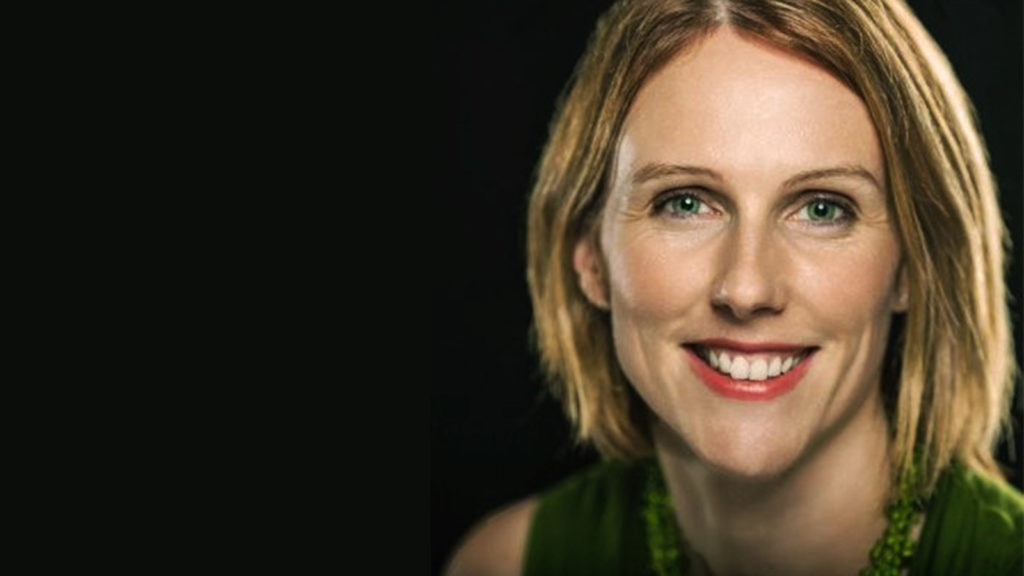
Executive of the Year – Distribution
Bennelong and Warakirri are again short-listed for the individual’s role. Jonas Daly at Bennelong and Stuart Devlin at Warakirri have the honours there. The other three are Eti Amegor of Axius Partners, a third-party marketing and funds management firm, Leah Willis (photo at top) from Australian Ethical and Michael Angwin from BMO Asset Management.
We like Michael Angwin and Leah Willis in this category, although all four firms have good growth stories. Angwin was recruited to head up an intermediary channel at BMO AM shortly after Ravi Sriskandarajah opened its Australian office in 2013. Ravi handled institutional and was quickly promoted to a regional role.
Angwin, a crowd favourite, took over the whole Australian and NZ business in 2020 when Ravi moved to a senior role at QIC in his home state of Queensland. But not before he recruited Harry Page from Rainmaker as a BDM. We’re wondering whether Harry, son of Rainmaker’s co-founder and driving force Chris Page, still has access to the company’s databases, which would come in handy right now. While we imagine that Angwin has a lot of friends and contacts in the industry, he may be a little too modest to lean on them to vote for him.
“That’s why he’s good at his job,” one contact said. “He sneaks up on people.”
With Leah Willis, it looks likes the stars have aligned; the right person in the right spot at the right time. Australian Ethical has been riding the wave of investor flows to ESG strategies and products, particularly climate-focused strategies, for the past three-four years.
Willis started at Australian Ethical at the end of 2016 with a brief to build and manage an intermediary sales team, which she had done twice before – at BT and what is now BlackRock.
Maria Loyez, the manager’s chief customer officer and Leah’s boss, says the advice channel, which did not exist five years ago, now makes up 20 per cent of Australian Ethical’s FUM.
“The channel also saw a 135 per cent increase in flows in the six-month period to December 2021, compared with the previous corresponding period. Adviser-based FUM was up 43 per cent since December 2020,” she says. “It’s pleasing to see this channel growing rapidly as we invest in building out this important channel.”
Loyez, who has a more varied background in senior marketing positions than Willis, including running her own consultancy, joined Australian Ethical in July 2020. She says the firm is “completely purpose driven” and draws the distinction between ESG and ethical investing.
“ESG investors tend to look at it as a factor,” she says. “It doesn’t mean they won’t invest in [stocks with low E, S or G rankings]. We are values based. We’d like to see ‘ethical’ becoming better known.”
Australian Ethical is also a strong contender in the website and social media categories this year.
Prediction: Leah Willis.
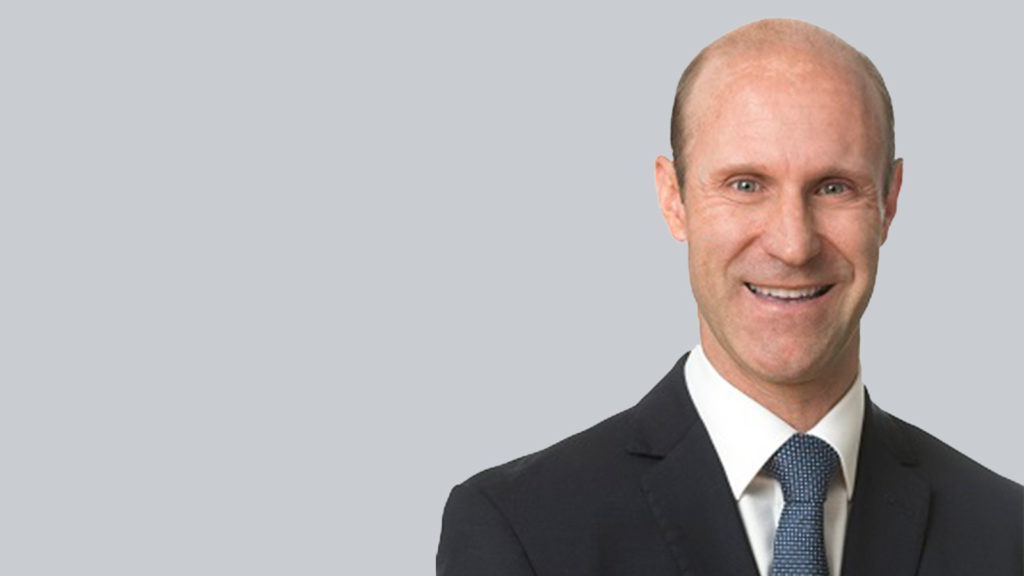
Marketing Team of the Year
This is one of four awards that BNP Paribas Asset Management is up for this year and one of the two that we fancy them for a win. Like everyone else, they already have their prizes for a place, which in BNP Paribas’ case must make David Grybas, the chief executive in Australia, a happy man.
Like distribution, marketing is always a tough one to call, because there are many moving parts in assessing the success or otherwise of the team’s efforts. Investment style and process, both out of their hands, can be the major influences on a manager’s success in various stages of the business cycle. Just getting to the finals list is a big deal when you consider that there are more than 300 eligible funds management firms in Australia.
The competitors this year are: BetaShares; La Trobe Financial; Praemium and UniSuper. The products and strategies on offer from each are very different and therefore even more difficult for comparisons.
Nevertheless, we would venture that BNP Paribas, as a multi-affiliate-style manager with a long track record in Australia (what is now BNP Paribas, the bank, was actually the first foreign bank to trade here, setting up in Australia in 1881) is bound to get it all together eventually.
Grybas joined BNP Paribas in 2005 as co-head of institutional business, with Rob Harrison, the CEO in Australia until 2011, and then for the Americas in New York. Harrison has returned to start his own third-party marketing firm, 3PD.
Grybas took over as Australian CEO in 2012. His selection of strategies to promote in Australia, which is one of the most important tasks for a local country head of a big multinational, has proved prescient, especially with the manager’s ESG ethos and product range. Like most French organisations, BNP Paribas has always been strong on ESG. The universal climate target isn’t called the ‘Paris Agreement’ for nothing.
BNP Paribas was not a finalist in any category last year, which saw this award go to Budget Direct. It’s three other chances this year are for Executive of the Year – Marketing (Renee Kaesler), Marketing Campaign of the Year – Industry (the ‘Earth Trust’ launch) and Product Launch of the Year, of which there were three: Green Bond Trust, Earth Trust and China Equity Trust.
Prediction: BNP Paribas Asset Management.
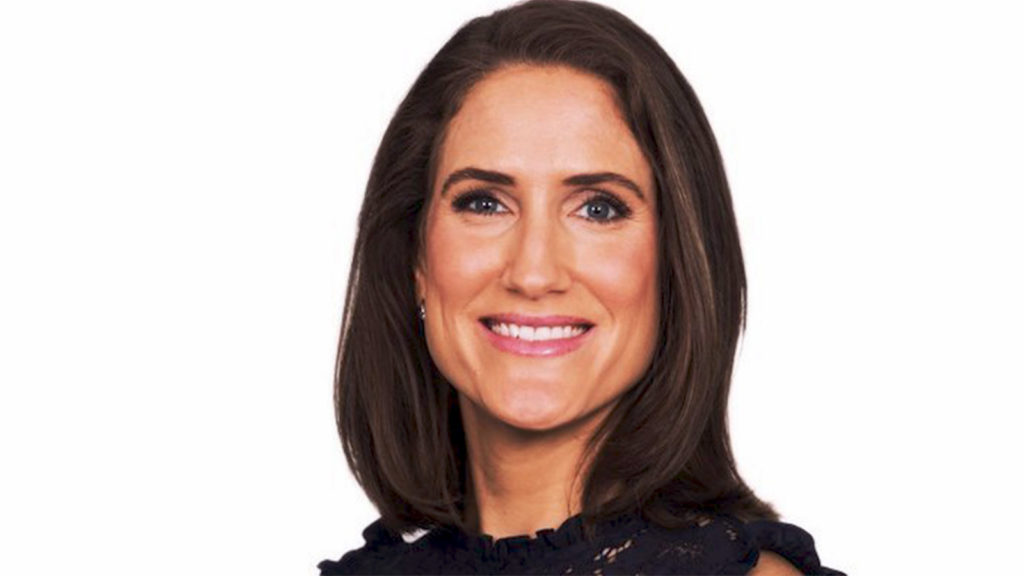
Executive of the Year – Marketing
This is the other category where we favour BNP Paribas to win, albeit by a slim margin. We think that BNP Paribas’ Renee Kaesler should beat Perpetual’s Jason Hunt (just), UBS Asset Management’s Katriona Mulham and MFS International’s Khiem Tudo and in that order – not that we’re ever likely to know.
Renee Kaesler is a home-grown talent for BNP Paribas. CEO David Grybas said of his brand, communications and marketing manager: “Renée is an exceptional and worthy finalist… She first joined BNP Paribas Asset Management in 2011 and over the course of her career at the firm, has continued to grow and develop her skills as both a marketer and as a brand and communications specialist.
“Renée’s commitment to the business and to her role are to be admired and continue to contribute to her success as a marketing professional.”
Jason Hunt, Perpetual Asset Management’s head of marketing, by comparison, has been in financial services marketing for about 20 years, starting as a marketing assistant at Citi in 2004. The last seven years have been with Perpetual, starting as a senior marketing manager.
Katriona Mulham, head of marketing at UBS Asset Management, spent about eight years in marketing for investments at Perpetual before moving into intermediary and platform channels at BT in 2017. She joined UBS for her current role in June 2019.
Khiem Tudo, marketing manager at MFS International, has been with the firm for three years, starting as an associate marketing manager. To his credit he previously survived five years as a freelance marketing and brand strategist
Prediction: Renee Kaesler
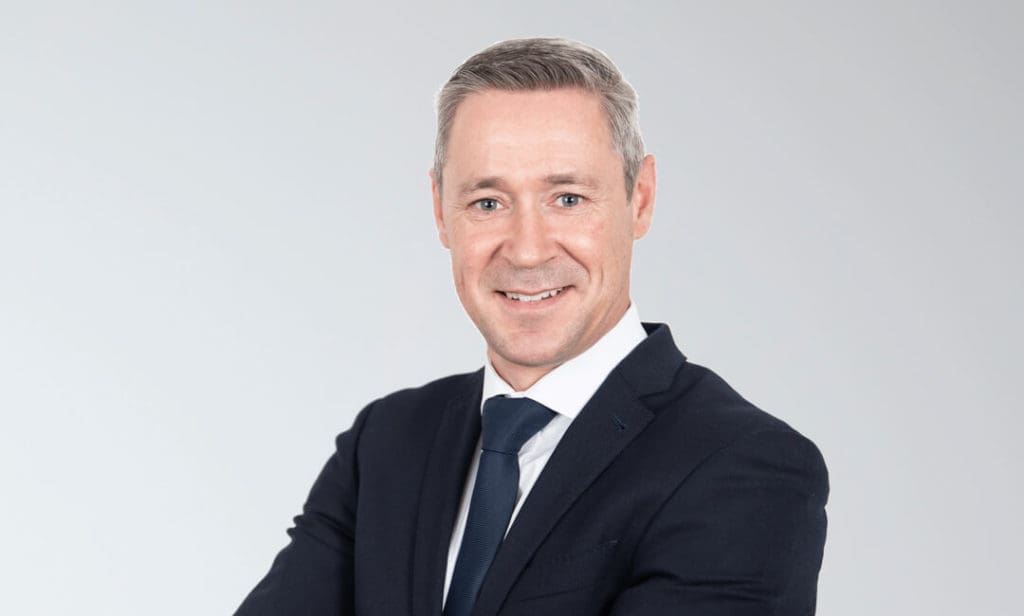
Product Launch of the Year
Renewable energy, climate-related and broader ESG products and strategies jostled for space in an increasingly crowded market last year. Differentiation became more important as greenwashing became more pronounced.
But other long-term themes were also popular, such as retirement demographic pressure, digitisation and food security.
Against that backdrop, each of the finalists in this category deserved its spot. Ranking their campaigns is difficult, coloured as it is by the quality of the products.
The finalists are: BetaShares for the Crypto Innovators ETF; BNP Paribas for the trio of Green Bond Trust, Earth Trust and China Equity Trust; Challenger for its Lifetime Annuities; Fidelity for the Sustainable Water & Waste Fund; and Warakirri for its Diversified Agriculture Fund.
Last year this award was won by Qsuper (now Australian Retirement Trust following the merger with Sunsuper) for its multi-award-winning lifetime pension.
We suspect that tech/digitisation, such as crypto investments, and lifetime annuities, as genuine they may be as trends, will be swamped by the popularity of climate-related and food-security strategies.
Intrestingly, BetaShares is about to launch a ‘Future of Food’ ETF, which we think would have had a better chance for this award. There’s an early tip for next year.
So, our short list is BNP Paribas, Fidelity and Warakirri. We can narrow that down to two by discounting Fidelity as a latecomer, relative to the other two, in the development of environmental capabilities. We can continue the process of elimination by simply favouring the little guy – the underdog and the dark horse – in a mishmash of cliches, over the behemoth. And it would be a nice consolation prize for Stuart Devlin, Warakirri’s head of distribution, in case he wins neither Executive of the Year, Distribution nor Distribution Team of the Year as we’ve tipped.
Prediction: Warakirri Asset Management.
Public Relations Agency of the Year
Our favourite category. As journalists we have to continually remind ourselves that PRs have just as important a role to play in adding to the sum total of human knowledge as we do. Well, that might be a stretch, but they definitely play a role.
And a lot of PR people are former journalists who have crossed over for various reasons, most often money but also working hours, the desire to work for oneself or better job security.
But the underlying problem is this: at least journalists profess to try to be impartial when they sit down to write something which resembles news and information. PR people don’t. How can they? They are employed to present the employer or client in the best light.
But the rest of society does not think as highly of journalists as we seem to think of ourselves. Should we really profess to be impartial; to publish without fear nor favour, when that has forever been a difficult task and now may be just about impossible?
Gerard Noonan, a former editor of the Australian Financial Review who became the long-serving chair of Media Super, liked to say when he was on the hunt for a merger partner late in the fund’s lifetime – a couple of years ago – that the best merger partners for Media Super would be LegalSuper, REI and MTAA. Then, all under the one roof, would be the most distrusted professions in the industry fund world – journalists, lawyers, real estate agents and car salespeople. Alas, even he couldn’t pull that one off and Media Super consummated its merger with Cbus this year.
Digitisation has been good for the PR sector. It has meant a proliferation of media through newsletters, bloggers, influencers, anyone with a smart phone. It has become a market where people increasingly cannot recall where they read what they read.
Publishing is cheap and the new rules of engagement, to the extent that there are any, are nowhere near as onerous. Some politicians – Malcolm Turnbull was one – would say when it suited that they have more Twitter followers than the Financial Review has subscribers.
But the halcyon years of PR, at least in terms of agency earnings, are under pressure from the traditional media itself through paid content. And the lines are often blurred. No one claims to be a journal of record any more, not even the Times of London. That was probably always an impossible goal anyway.
Disruption is visiting upon PR just as it has visited upon print media and free-to-air television and radio. Last year, the MAX Award for Public Relations Agency of the Year was won by boutique Mountain Media. This year’s finalists are: FCR (Financial & Corporate Relations); Honner; PritchittBland; Reverb Media; and, Shed Connect, the owner of this masthead.
Prediction: We have no idea.
Social Media Campaign of the Year
You would think that the impact of a social media campaign would be easy enough to judge. You just add up the clicks, eyeballs and time online which the IT department can find easy enough and there’s your answer.
But that is surely not the best measure of true impact, you wonder. Surely who reads, sees, listens to your message is the most important element of the campaign’s success or otherwise. That element has to be estimated too, along with the internal power and importance of the message. IT departments are not so good at coming up with those stats.
Luckily for commentators and self-appointed judges, that gives us enough wiggle room to analyse this Max Award, which was last year won by Australian Ethical. The candidates this year are: Australian Ethical again; BT; Elliott Watson Financial Planning; State Street Global Advisors; and, Stockspot.
BT ran a digital engagement campaign which actually fits the mould of what a good campaign should be about. It was using social media to improve ongoing business engagement rather than as yet-another launch vehicle.
Elliott Watson Financial Planning’s campaign, concentrated on Facebook to enhance adviser relationships. While we commend the aim, the choice of medium seems somewhat dated and, of late, suspect on political grounds.
Fund manager SSGA (which regular readers will recall has abandoned the former, more elegant, initialisation of SSgA), ran an institutional content campaign and Stockpot a video campaign called ‘Reel Advisers’.
We are going to bypass our usual practice of not predicting a two-in-a-row winner this time and confidently predict that Australian Ethical has blown the competition away, no less, with its ‘Open Your Eyes’ campaign.
In the lead-up to COP 26 climate change conference in Glasgow starting October 31 last year, Australian Ethical’s Maria Loyez must have taken a deep breath before booking a four-page wrap advertisement around the London Financial Times newspaper to start the campaign. She declined to reveal the cost of such a front-page spread but we guess close to A$1 million.
(The FT’s wraps are rare and price negotiated. The highest profile advert available on the paper’s rate card is a double-page centre spread at A$333,000.)
Loyez says the FT was chosen because it was the official paper of COP26 and would have the most impact reaching the targeted Australians along with world leaders. At the time, the Australian Government was looking to avoid the embarrassment of attending when the country had still not committed to a net zero target by 2050.
Within the first couple of days of the campaign, with a virally managed kick-along throughout the world, there had been more than 7,500 registrations of support from Australians on the new Australian Ethical website.
We love the use of a physical newspaper advert to start a social media campaign, as you might expect, but we particularly love how big bold and brave the statement was.
Prediction: Australian Ethical for ‘Open Your Eyes’.
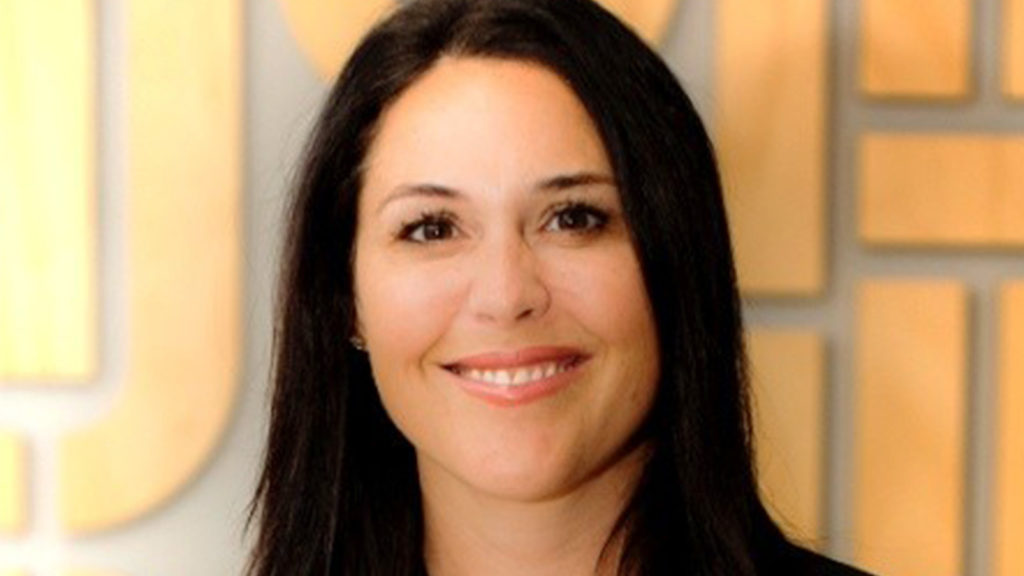
Website of the Year
Everyone’s got a website and everyone updates them constantly and does complete overhauls fairly regularly. Hang the cost, you just have to do it.
But doing it well, in a manner which pleases all stakeholders – not just the designers and technicians – including the owners of the business is perhaps not as commonplace as it should be.
The finalists this year are: Hub 24; ClearBridge Investments; Primary Markets; Super SA; and, Australian Ethical. Last year it was won by wealth manager Mason Stevens.
Anne McDonnell, HUB 24’s head of marketing, says that the aim of the new website was to better reflect the platform company’s market position and profile after several years of strong growth.
That growth has, in fact, been stellar, climbing from $4.15 billion in custodial funds five years ago (as of March 2017) when the original website was launched, to $51 billion as of March this year. The firm now has a total of $68 billion under administration including non-custodial assets.
The re-build, still using WordPress as the system, followed extensive analysis and discussion with users, looking at the pages they went to and garnering their experiences. Involving a new interface for HUB’s education service, the site went live in December.
McDonnell, who joined HUB 24 in November 2016 from BT Financial Group where she was senior manager of platforms marketing, has a broader role than previously, taking into account the company’s size and ASX listing.
She says the messages have to be consistent but being a bit smaller can allow for greater flexibility from the marketing team. “You can get things done,” she says.
And being bigger doesn’t necessarily mean that marketing departments have more money to spend. “Everyone is always fighting for marketing resources,” she says.
The ClearBridge rebuild followed the change of name for the company formerly known as RARE Infrastructure. Each of the finalists in this category have had very strong growth but in ClearBridge’s case the growth has also come from its expanding international base.
The site emphasises the firm’s strategies and, more importantly, strategic thinking with clear messaging on the home page and easy access to the various investor portals.
Australian Ethical’s new site looked to improve the differentiation of the manager’s strategies due to the proliferation and concerns about greenwashing by newcomers to the space.
“We stand for more than just ‘eco’ and we are professional investment managers. We wanted to build our visual identity and website around that,” Maria Loyez says. The brief to agency Accompany was the site to reflect the firm’s history, professional investment management and its progressive forward-thinking approach, she says.
Prediction: HUB 24.
Congratulations. You have made it to the end. You deserve an award.










